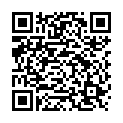Recommended or required reading:
Becker, C. et al.: Tourismus und nachhaltige Entwicklung, Wissenschaftliche Buchgesellschaft, Darmstadt, aktuelle Auflage
Becker, Chr.; Hopfinger, H.; Steinecke, A. (Hrsg.): Geographie der Freizeit und des Tourismus. Bilanz und Ausblick, Oldenbourg, München, Wien, aktuelle Auflage
Benckendorff, P. Lund-Durlacher, D. (Eds.) (2013). International Cases In Sustainable Travel & Tourism. Goodfellow Publishers: Oxford.
Bieger, T.: Tourismuslehre Ein Grundriss, Haupt, Bern u. a., aktuelle Auflage
Bieger; Beritelli: Management von Destinationen (Lehr- und Handbücher zu Tourismus, Verkehr und Freizeit), aktuelle Auflage
Boniface; Cooper: Worldwide Destinations: The Geography of Travel and Tourism, aktuelle Auflage
Boniface; Cooper: Worldwide Destinations Casebook: The Geography of Travel and Tourism, aktuelle Auflage
Gebhardt, H., Glaser, R., Radtke, U., Reuber, P., Geographie. Physische Geographie und Humangeographie, Spektrum Akademischer Verlag, aktuelle Auflage
Hall, C. M.; Page, S.: The Geography of Tourism and Recreation. Environment, Place and Space, Routledge, London, 2006
Hagget, P.: Geographie. Eine globale Synthese, Verlag Eugen Ulmer, UTB, aktuelle Auflage
Heineberg, H.: Einführung in die Anthropogeographie, Humangeographie, Schöningh, Paderborn, aktuelle Auflage
Heineberg, H.: Stadtgeographie. UTB, Aktuelle Auflage
Institut für Länderkunde (Hrsg.) Nationalatlas Bundesrepublik Deutschland. Verschiedene Bände, Spektrum Akademischer Verlag, Heidelberg, Berlin, versch. Jahrgänge
Kagermeier, A.: Tourismusgeographie. UVK Lucius, Konstanz, aktuelle Auflage
Knox, P. L.; Marston, S. A.: Humangeographie, Spektrum Akademischer Verlag, Heidelberg, aktuelle Auflage
Kiesow, G. Kulturgeschichte sehen lernen (Band 1-5), Deutsche Stiftung Denkmalschutz, aktuelle Auflage
Lichtenberger, E.: Stadtgeographie 1.- Stuttgart, aktuelle Auflage
Mancini, M.: Selling Destinations, aktuelle Auflage
Mundt, J. W. : Tourismus, aktuelle Auflage
Mundt, J.W.: Tourism and Sustainable Development, aktuelle Auflage
Page, Connell: Tourism. A modern Synthesis, aktuelle Auflage.
Schmude, J.: Tourismusgeographie, WBG, Darmstadt, aktuelle Auflage
Schultz, J.: Die Ökozonen der Erde. UTB, aktuelle Auflage
Steinecke, A.: Destinationsmanagement, aktuelle Auflage
Steinecke, A.: Internationaler Tourismus, UVK Lucius, aktuelle Auflage
Steinecke, A.: Tourismus. (Das Geographische Seminar) Braunschweig, aktuelle Auflage
Strahler A. H.; Strahler, A. N.: Physische Geographie, Verlag Eugen Ulmer, UTB, aktuelle Auflage.
[updated 11.01.2024]
|


